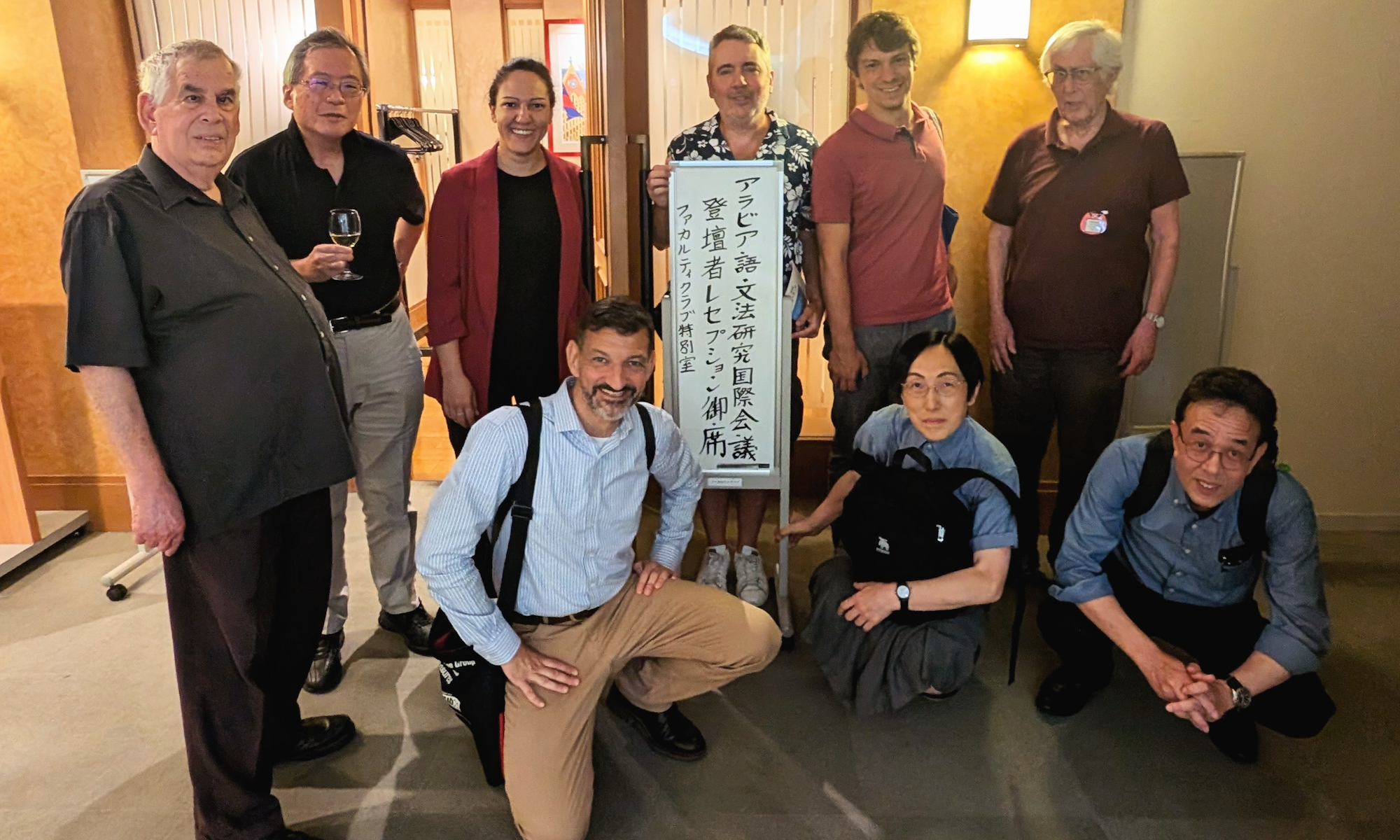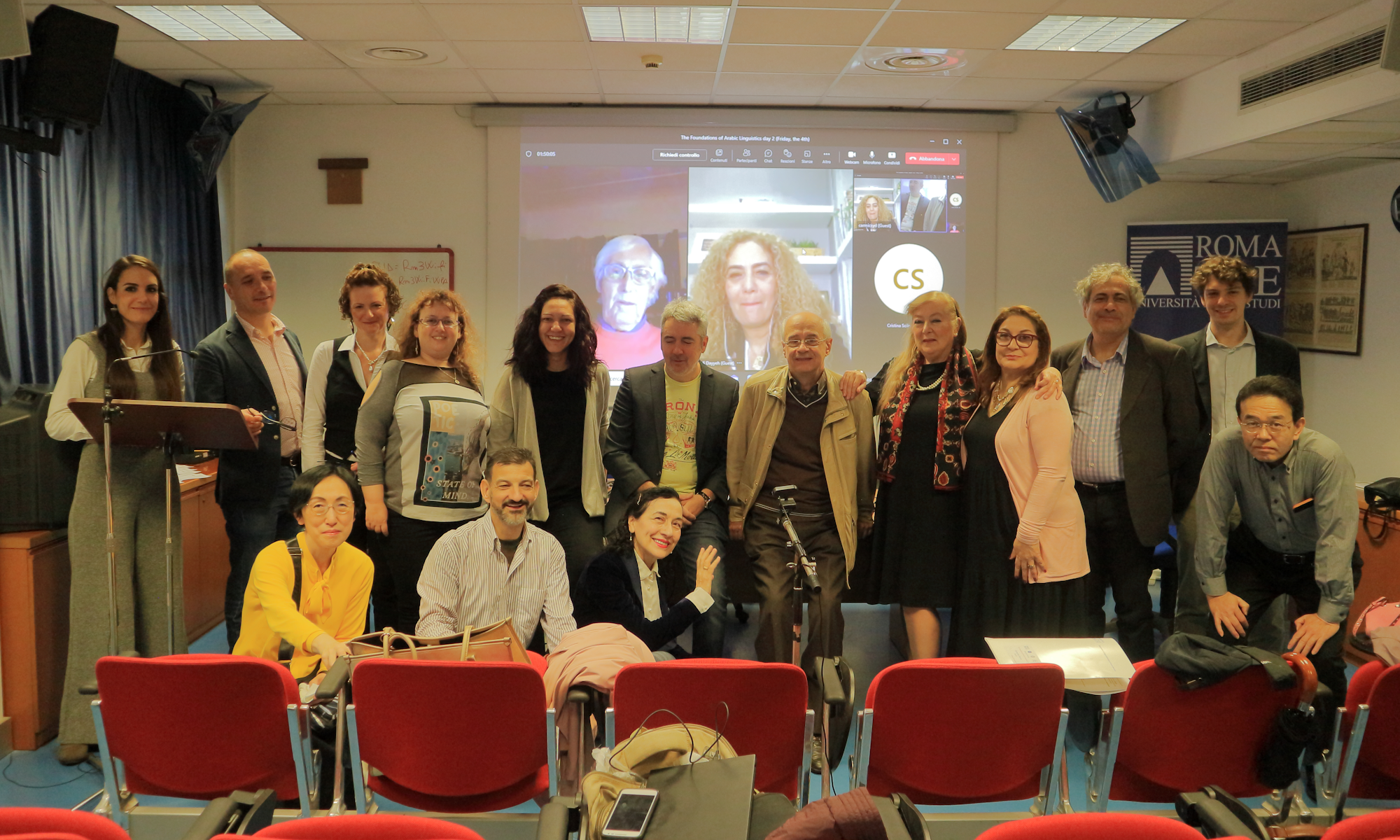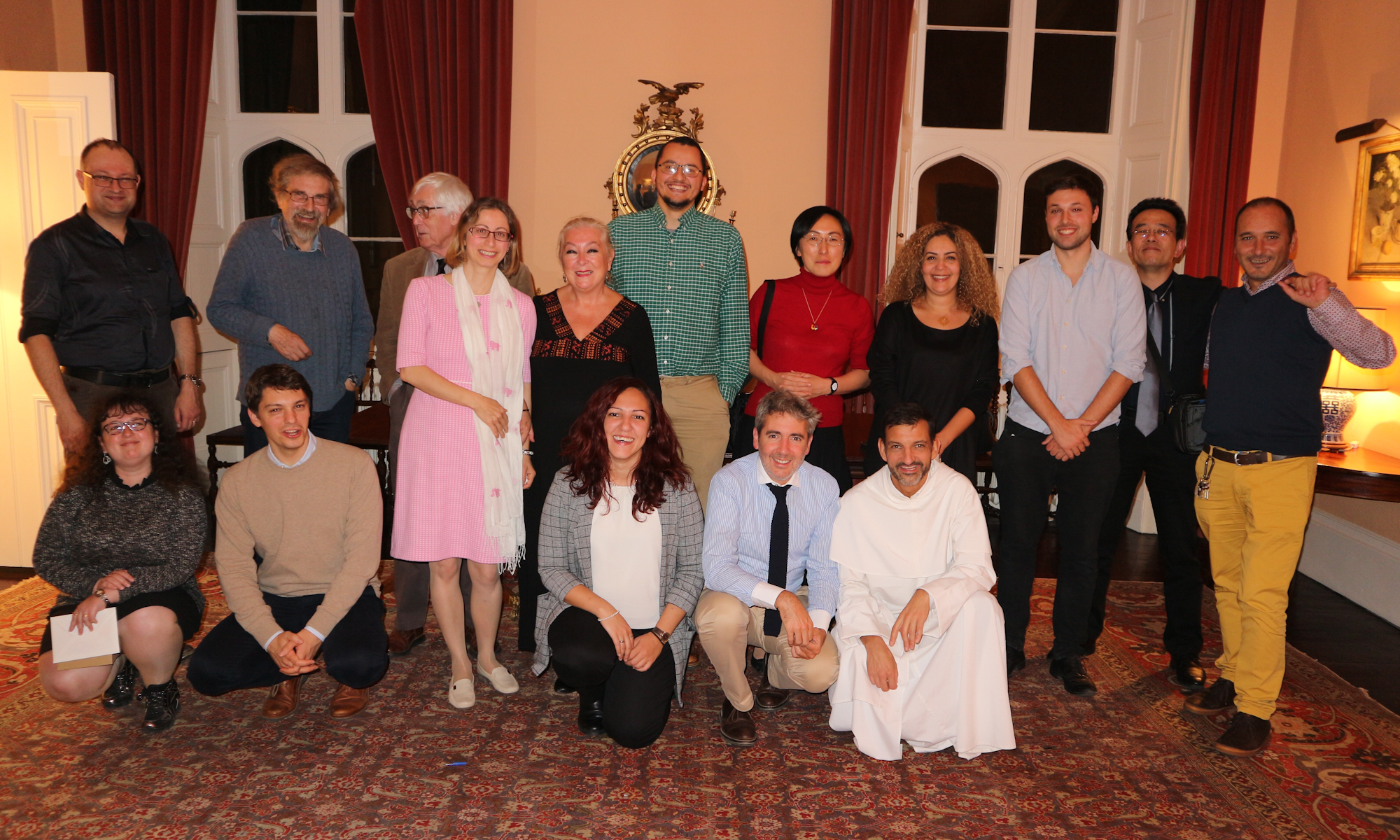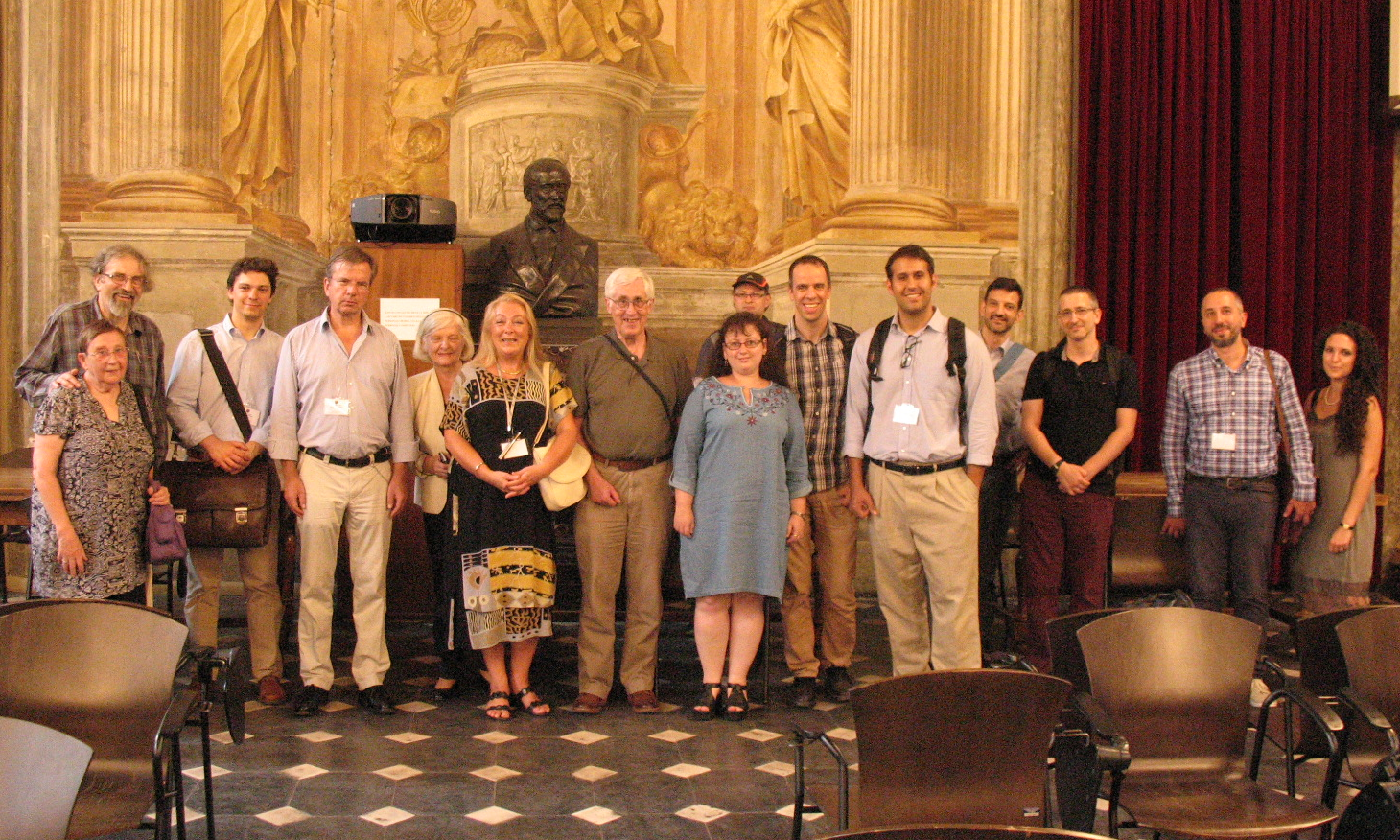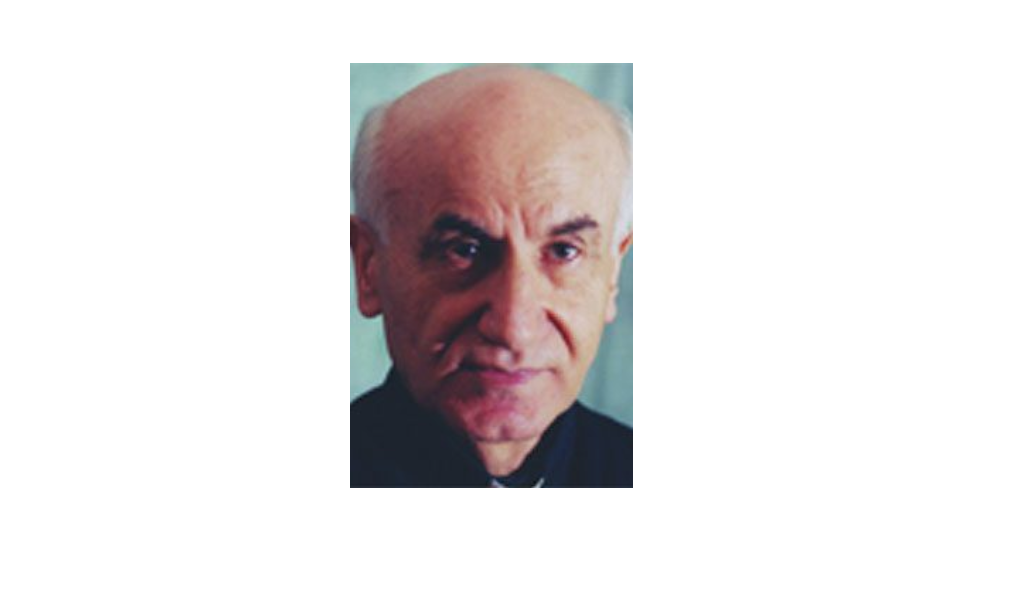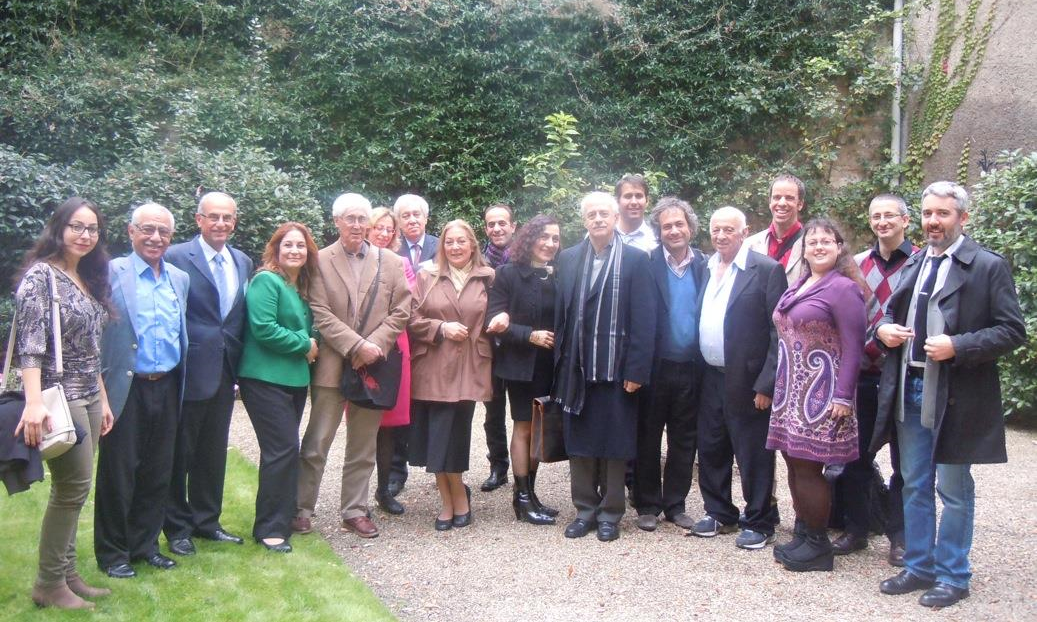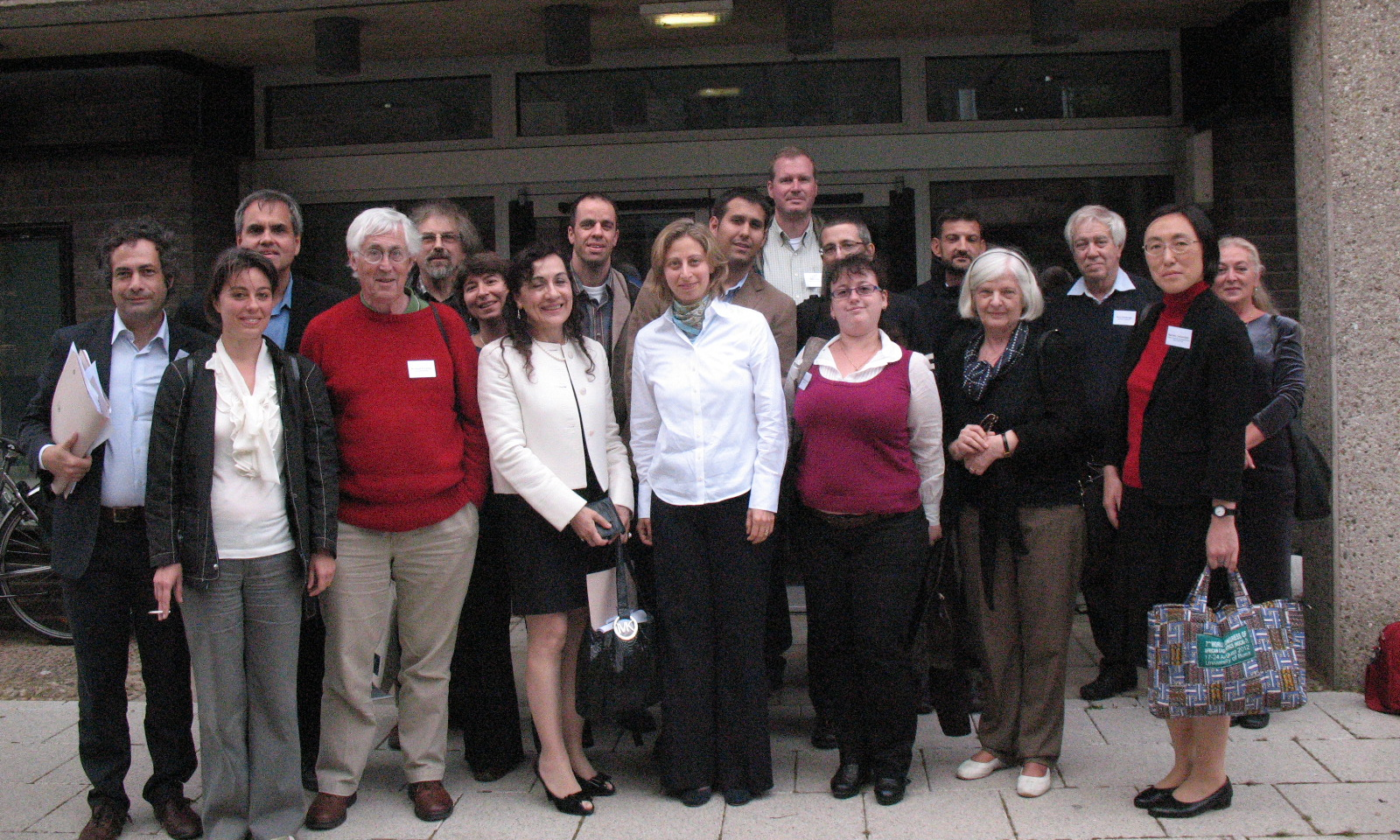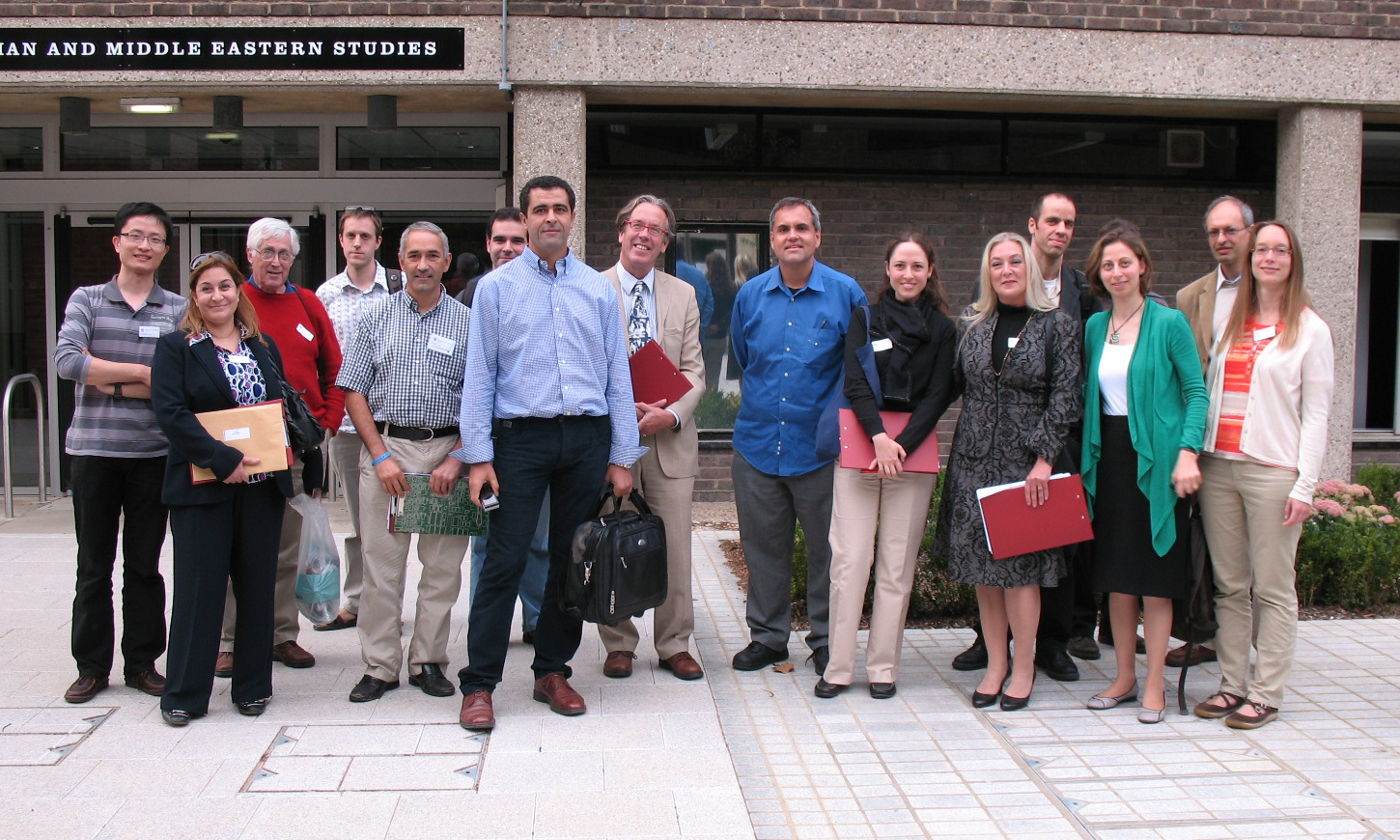-
FAL 7 (Tokyo, 2024)
The FAL 7 conference took place in Tokyo, on August 28ᵗʰ‒30ᵗʰ, 2024. Papers were presented on the 28ᵗʰ and the 29ᵗʰ, and we organised a field trip on the 30ᵗʰ. Sībawayh and his heirs: Controversies surrounding the legacy August 28ᵗʰ August 29ᵗʰ 10:00‒10:30 Registration & 10:20 Opening 10:30‒11:00 Manuel Sartori“Slip of the tongue and
-
Aryeh Levin (1937‒2023)
Born in 1937 in Ramat Gan, a city in central Israel, the late Prof. Aryeh Levin was one of the leading figures in the research of Arabic grammarians in general and Sībawayhi in particular. His notable contributions include numerous articles about Sībawayh’s Kitāb and later grammarians’ treatises. Aryeh was a lively and beloved friend in the
-
FAL 6 (Rome, 2022)
The proceedings of this sixth conference will be published in 2024: The foundations of Arab Linguistics VI (edited by Manuela E. B. Giolfo, Giuliano Lancioni & Raoul Villano), Leiden: Brill, to be published (“Studies in Semitic languages and linguistics”).
-
FAL 5 (Cambridge, 2018)
The proceedings of this fifth conference were published in this volume: The foundations of Arab linguistics V: Kitāb Sībawayhi, The critical theory (edited by Manuel Sartori & Francesco Binaghi), Leiden: Brill, 2022 (“Studies in Semitic languages and linguistics”; 107). “Arab linguistics” replaces the previous “Arabic linguistics”, which is an echo of the distinction sketched by
-
FAL 4 (Genova, 2016)
The proceedings of this fourth conference were published in this volume: The foundations of Arabic linguistics IV: The evolution of theory (edited by Manuela E. B. Giolfo & Kees Versteegh), Leiden: Brill, 2019 (“Studies in Semitic languages and linguistics; 97). See more details here…
-
Solomon I. Sara (1930‒2016)
Born in 1930 in Mangesh, a small Chaldean village in Iraq, late Prof. Solomon I. Sara (Šlīmōn Īšō Ṣārā) traversed numerous physical, cultural, and religious boundaries on his path to becoming a Jesuit priest in the US. Renowned as a specialist in classical Arabic phonetics and phonology, his notable contribution includes his 2007 book on
-
FAL 3 (Paris, 2014)
The proceedings of this third conference were published in this volume: The foundations of Arabic linguistics III: The development of a tradition: Continuity and change (edited by Georgine Ayoub & Kees Versteegh), Leiden: Brill, 2018 (“Studies in Semitic languages and linguistics; 94). See more details here…
-
FAL 2 (Cambridge, 2012)
The proceedings of this second conference were published in this volume: The foundations of Arabic linguistics II: Kitāb Sībawayhi, interpretation and transmission (edited by Amal E. Marogy & Kees Versteegh), Leiden: Brill, 2015 (“Studies in Semitic languages and linguistics”; 83). This volume includes: See more details here…
-
FAL 1 (Cambridge, 2010)
The proceedings of this first conference were published in this volume: The foundations of Arabic linguistics: Sībawayhi and early Arabic grammatical theory (edited by Amal E. Marogy), Leiden: Brill, 2012 (“Studies in Semitic languages and linguistics”; 65). This volume includes: See more details here…
-
Hello world!
Welcome to FAL! We are a group of scholars and friends passionate about the history of Arab linguistics. FAL stands for Foundations of Arab Linguistics, and since 2010 and the founding Cambridge edition, we try to meet every two years to share our research, explore new issues, confront our ideas and meet new friends.
Foundations of Arab Linguistics
A group of scholars passionate about the history of Arab linguistics

